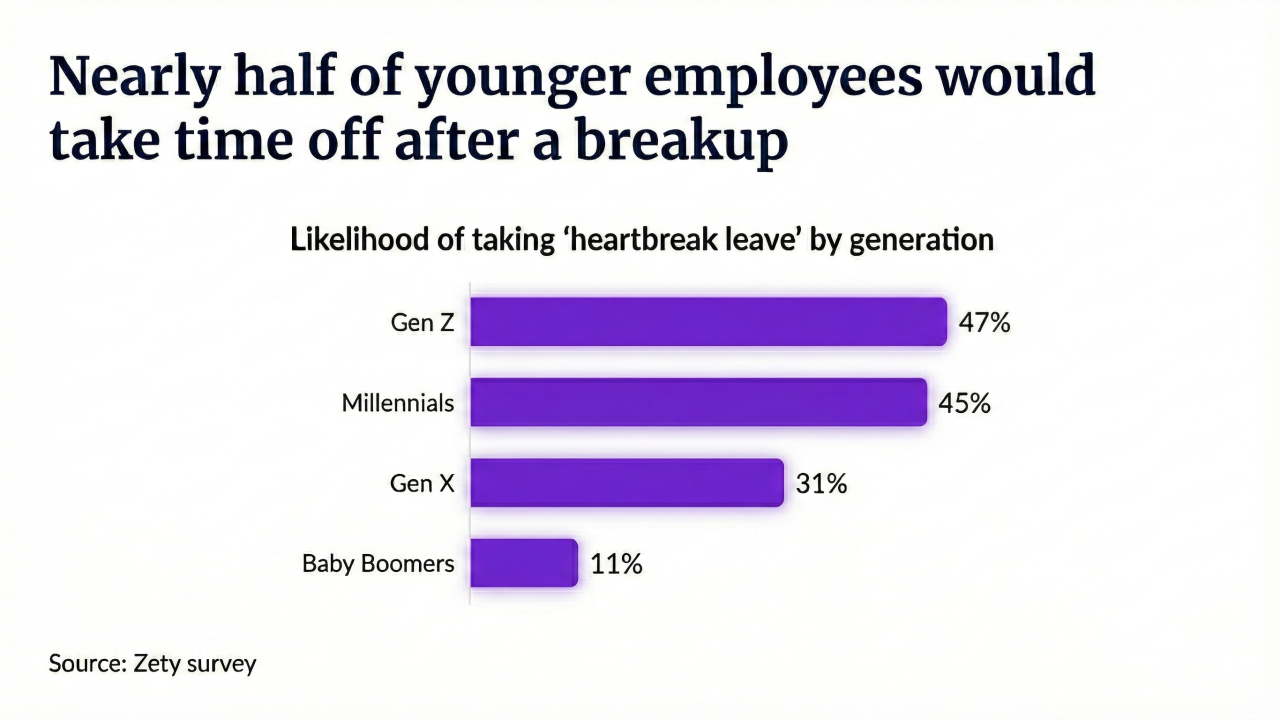- Key Insight: Learn how "ghost growth" masks stagnation, converting added responsibilities into retention liabilities.
- Supporting Data: 66% of workers say their employer engages in performative "growth theater."
- Forward Look: Expect increased scrutiny of pay, promotion fairness, and benefits to address burnout.
- Source: Bullets generated by AI with editorial review
An increasing number of workers are taking on more responsibility without receiving a raise or promotion, fueling resentment and potential loss of talent.
A new study from MyPerfectResume highlights the rise of "ghost growth" in the workplace and the emotional toll it can take on
According to the survey, 66% of workers believe their employer engages in "growth theater" — a performative display of career development that lacks real advancement. Nearly half say they've reached
"It's not just demoralizing, it's a retention risk," says Jasmine Escalera, career expert at MyPerfectResume.
To combat this growing trend, Escalera says benefit managers should start by asking tough questions like: How pervasive is ghost growth in the company and is it potentially happening to one population more than another?
Read more:
The survey found that 47% of women have been assigned new responsibilities without a raise or promotion compared to just 40% of men. The divide could be explained by unconscious biases or something systemic within the organization, Escalera says.
She also suggests doing a
Aside from the gender divide, Escalera says it's also important for benefit managers to have candid conversations with employees to find out what they need from the company in order to have a good experience.
"A lot of individuals want career growth where they're going to be learning new skills and developing new opportunities," Escalera says. "Sometimes individuals also want flexibility and
More responsibility, no reward
MyPerfectResume's survey also revealed that certain performance-development tactics are leading to more turnover. Nearly 70% of workers have thought about quitting due to fake or performative growth such as a promotion with no raise, and 27% have actually left a job for that reason.
A little over half of workers interviewed said they feel pressure to look like they are growing even when they are not. When asked what real growth looks like, the most common responses were higher pay, better work-life balance, a clear promotion path and the opportunity to build new skills.
How this relates to burnout
When workers take on extra responsibilities but fail to advance up the ladder, the risk of burnout increases, according to the survey. Company leaders should create a culture in which employees feel comfortable talking about their workload and how it's impacting their mental health, Escalera says.
"We're seeing a lot of people career downsizing, where individuals are saying it's worth more to me to actually have more time to myself, have more time with family and not race up the corporate ladder," Escalera says.
Read more:
Benefits like additional
She also recommends that benefit managers conduct employee surveys to ask what resources and benefits would
"It's really important and valuable to understand what employees need," Escalera says. "Make sure there's an open line of communication to talk about burnout and help individuals understand this is something that we take seriously. Those are huge steps in the right direction."






